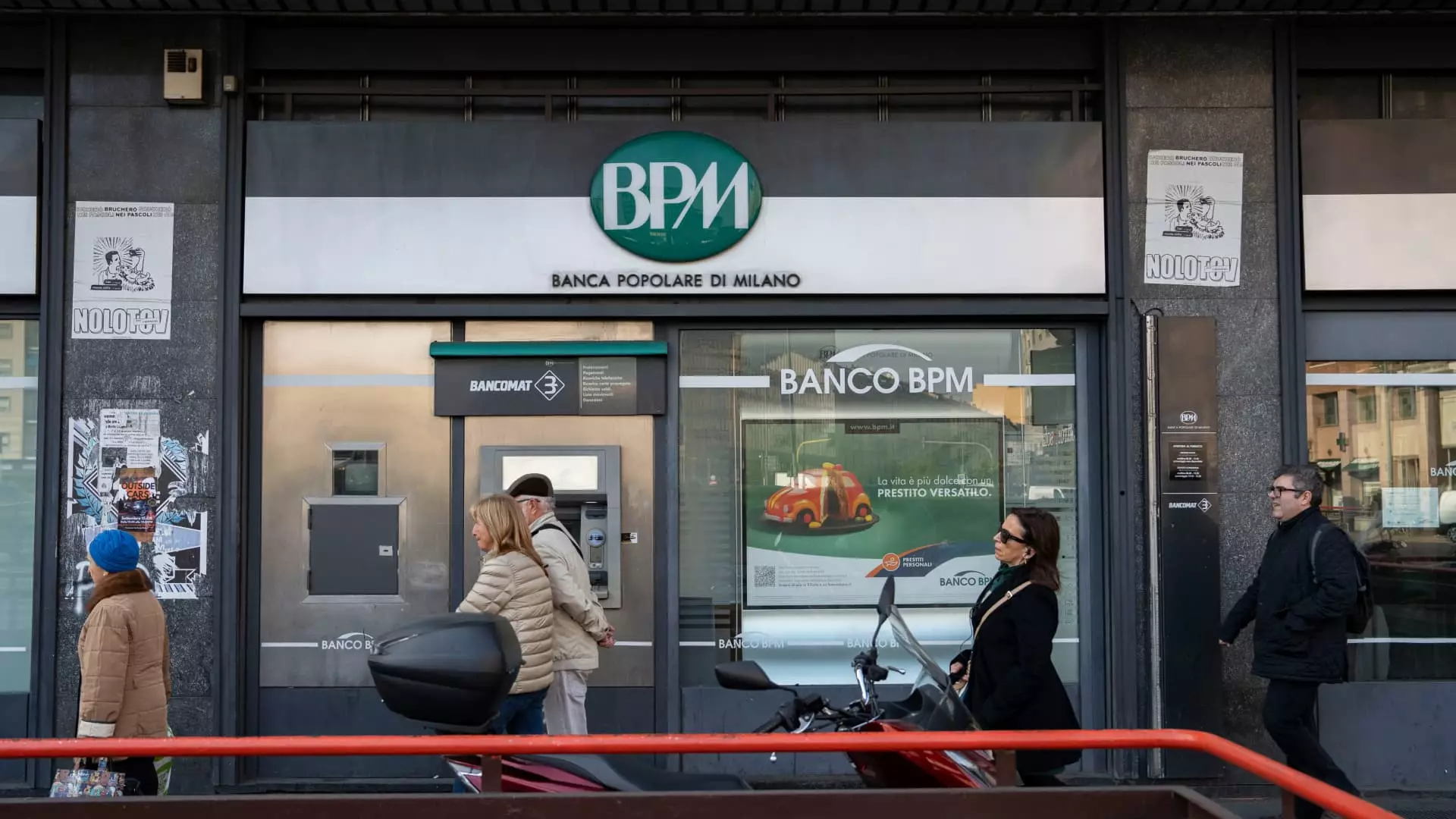In a surprising turn of events, Banco BPM has publicly rejected UniCredit’s unsolicited takeover proposal, asserting that it undervalues the bank’s profitability and future growth prospects. This development not only highlights the competitive landscape of the Italian banking sector but also raises questions regarding the strategic intentions of UniCredit and the financial stability of Banco BPM. Analyzing these dynamics allows us to better understand the broader implications of such merger and acquisition activities within Europe’s financial markets.
In the wake of UniCredit’s €10 billion bid, Banco BPM’s board made it clear that they view the offer as an opportunistic approach rather than a fair representation of their market value. The Banco BPM leadership characterized the proposal as being delivered under “unusual” terms, which suggests that the timing and context of the bid were not aligned with their expectations for fair corporate relations. The market, on its part, responded coolly; Banco BPM’s shares saw a minor decline, while UniCredit’s stock remained stable. This muted reaction could indicate investor skepticism regarding the intrinsic value and long-term consequences of such a merger.
UniCredit CEO Andrea Orcel has previously positioned the takeover as a necessary step for boosting European banking competitiveness amidst global economic challenges. However, the reaction from Banco BPM underscores the necessity of strategic communication and alignment between negotiating entities. The contrasting responses emphasize how fragile corporate negotiations can be, particularly when stakeholders feel their financial health is misrepresented.
A pivotal point made by Banco BPM was the concern that UniCredit’s proposal could lead to a dilution of its existing geographic focus, specifically indicating worries about potential overreach into markets like Germany. With UniCredit already targeting Commerzbank for acquisition despite German governmental pushback, Banco BPM argues that such developments could impair its operational autonomy. The board’s insistence on preserving Banco BPM’s geographical concentration in the dynamic Eurozone regions indicates a strategic commitment aimed at maintaining strong local engagement rather than becoming dispersed through acquisition.
This cautious approach reflects an understanding of regional market dynamics and the importance of localized banking strategies in an era where customer relationships and trust play critical roles. Enhanced local responsiveness can potentially offer banks a competitive edge, enabling them to cater actively to their core customers. Thus, the implications of a merger on geographic focus cannot be underestimated, and Banco BPM’s stance is a prudent call for broader strategic awareness.
UniCredit’s ambitions form part of a larger trend in European banking where consolidation is sought to foster resilience against competing global economic powers. Orcel’s comments highlight a vision where stronger banks could create more robust frameworks necessary for European economic development. The need for greater financial clout within Europe is applicable not just to banks but extends across various corporate sectors, where scale often equates to competitiveness on the international stage.
However, the challenges faced by UniCredit in achieving its merger goals—both with Banco BPM and Commerzbank—bring attention to significant regulatory scrutiny and nationalistic sentiments regarding banking. The resistance from the Italian government and other stakeholders further emphasizes the complexities of cross-border banking dynamics within Europe. Thus, while consolidation may offer theoretical benefits, practical challenges like regulatory barriers and opposition from shareholders can render such strategies arduous.
The response from Banco BPM to UniCredit’s takeover bid illuminates vital concerns regarding valuation, operational sovereignty, and strategic focus. In an evolving financial landscape, banks must ensure their growth strategies align with their core values and market positions. The dialogue surrounding M&A activities in the banking sector is increasingly becoming a nuanced battleground, where financial viability must coexist with stakeholder interests and national economic considerations. Moving forward, the outcomes of these negotiations will have lasting impacts on the structure and health of the Italian banking industry, shaping the very foundation of financial services in Europe for years to come.

